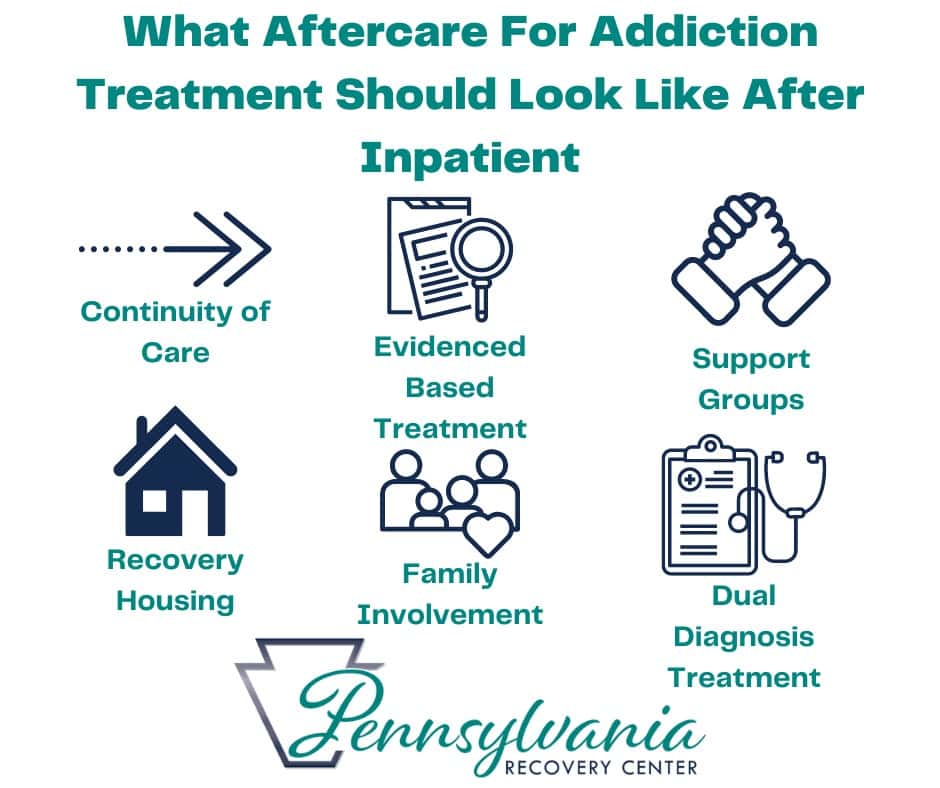Finding hope at rehab near Chester NJ for complete wellness
Wiki Article
A Comprehensive Overview to Substance Abuse Rehabilitation
Substance Abuse rehab, often described as rehabilitation, is a structured procedure made to assist people overcome reliance on medicines, alcohol, or other addicting materials. It is not merely regarding detoxing-- it is a journey of mental, psychological, and physical makeover. Rehab centers supply safe atmospheres where people can confront the source of their addiction, address mental triggers, and discover dealing mechanisms to suffer long-lasting soberness. This procedure is led by qualified experts, consisting of specialists, clinical physicians, and therapists who understand the complicated nature of addiction as both a physical and behavior problem.Recognizing the Core of Substance Abuse Abuse Rehab
At its core, rehab is about rebuilding a person's life. Addiction commonly leaves deep marks-- stretched partnerships, economic distress, illness, and mental illness. Via comprehensive rehabilitation programs, people are offered the devices to fix these elements progressively. Rehabilitation isn't almost staying away from materials; it has to do with redeeming control and discovering one's feeling of self-regard. The programs highlight structure, consistency, and personal liability, which are vital to lasting healing success. Every little milestone during rehabilitation offers as a foundation for lasting sobriety.Moreover, Substance Abuse recovery is not a one-size-fits-all technique. It recognizes that each individual's dependency story is unique-- what brought about Substance Abuse abuse, exactly how it progressed, and just how healing can be sustained differ commonly. Therapy facilities tailor care plans based on individual assessments, making certain that every person obtains support that straightens with their psychological state, addiction background, and life circumstances. This personalized approach significantly improves recovery end results and helps protect against regression once people rehabilitate into day-to-day life.
The Benefits of Inpatient Rehab Programs
Inpatient rehabilitation, also called residential therapy, supplies one of one of the most reliable methods for those fighting extreme Substance Abuse dependency. Among its main benefits is the organized and distraction-free atmosphere. When a person goes into an inpatient center, they are momentarily gotten rid of from exterior triggers-- such as close friends that make use of compounds, demanding offices, or family members disputes-- that may impede their recuperation. This seclusion from unfavorable impacts enables people to concentrate completely on healing. Living within a helpful and monitored setting creates the security required to break old practices and form healthier patterns of actions.An additional significant advantage of inpatient rehab is the 24/7 specialist guidance offered to each patient. Withdrawal signs and symptoms from medications or alcohol can be unforeseeable and, in many cases, deadly. Inpatient facilities have clinical teams that provide continuous treatment, guaranteeing patients are comfortable and secure throughout cleansing. Past physical health and wellness, constant guidance likewise offers psychological peace of mind-- patients recognize that help is readily available at any moment, which decreases anxiousness and develops count on the healing process. This instant access to clinical and psychological support significantly improves the success rate compared to outpatient treatment for severe dependencies.
Lastly, inpatient rehabilitation programs promote a strong sense of area and responsibility. Patients engage with others that share similar struggles, get involved in group therapy, and take part in activities that motivate synergy and empathy. This environment supports good understanding and decreases sensations of seclusion frequently linked with dependency. By connecting with peers and discovering from their experiences, people develop social bonds that remain to support them also after leaving the center. This feeling of belonging, combined with constant expert advice, makes inpatient rehabilitation a highly efficient foundation for sustainable recovery.
Inpatient Rehab Services Offered
Inpatient rehab centers offer a varied variety of solutions designed to treat the body, spirit, and mind simultaneously. The initial stage usually includes clinical cleansing, a procedure that securely eliminates compounds from the body while handling withdrawal signs. Detoxification is overseen by doctor who may administer medication to ease pain and prevent complications. As soon as detoxification is full, individuals shift to structured daily programs that include therapy, health, and therapy tasks. This integrated approach makes certain that individuals not only overcome physical dependancy but additionally address emotional and emotional aspects of dependency.Therapeutic solutions are at the heart of inpatient rehabilitation. Facilities offer person therapy sessions, where people function one-on-one with accredited therapists to discover the underlying causes of their dependency-- such as trauma, psychological health conditions, or unresolved psychological pain. Cognitive-behavioral treatment (CBT), dialectical actions treatment (DBT), and motivational speaking with are among the most usual evidence-based techniques made use of. On top of that, team therapy sessions supply a supportive area for people to share experiences, gain point of view, and create interpersonal skills. Family members therapy is likewise regularly included, assisting to restore trust and enhance interaction between clients and their liked ones.
Past conventional treatment, several inpatient programs include recreational and alternative solutions to advertise total wellness - dual diagnosis rehab NJ. Yoga exercise, reflection, art treatment, and fitness programs help in reducing anxiety and educate mindfulness. Nutritional counseling ensures that clients reconstruct physical health and wellness, as Substance Abuse usually depletes the body's important nutrients. Some rehab centers even provide professional training and instructional workshops to aid people plan for reintegration right into culture. These varied solutions are made to recover the entire individual-- not simply deal with addiction signs-- by promoting balance, purpose, and resilience
Why You Have To Think About Outpatient Programs
While inpatient rehab provides a intensive and immersive strategy, outpatient programs supply an option that enables flexibility for people that can not dedicate to full-time residential therapy. Outpatient rehabilitation allows clients to obtain organized therapy and clinical assistance while preserving their daily duties-- such as family, institution, or job treatment. For numerous individuals with moderate to moderate dependency, outpatient treatment supplies the best balance in between recovery and day-to-day life. It enables people to practice the coping abilities they discover in real-world settings, enhancing their strength when faced with daily difficulties.An additional reason to consider outpatient programs is their cost-effectiveness. Inpatient care can be pricey due to holiday accommodation, meals, and 24-hour guidance, which may not be economically viable for everyone. Outpatient programs, nonetheless, usually set you back less since they do not call for domestic remains. Many facilities use sliding-scale payment choices or approve insurance policy to make treatment easily accessible. For those that have already finished inpatient rehabilitation, transitioning into an outpatient program works as a beneficial continuum of treatment, helping preserve liability and prevent relapse via recurring support.
Furthermore, outpatient programs supply a high level of customization. Patients her response can select between partial a hospital stay programs (PHP), extensive outpatient programs (IOP), or standard outpatient care, depending upon their level of need. Each alternative gives varying degrees of structure and time commitment. As an example, IOPs usually rehab near Chester NJ include a number of treatment sessions each week, while common outpatient treatment could consist of regular therapy sees. This adaptability ensures that clients can receive specialist aid customized to their recovery phase, making outpatient programs a sensible and empowering option for lasting recuperation upkeep.

Discovering Various Other Therapy Choices basically Abuse Healing
Beyond outpatient and inpatient rehabilitation, there are numerous other therapy choices readily available for people looking for recuperation from Substance Abuse dependency (dual diagnosis rehab NJ). Medication-assisted treatment (MAT) is one such method, integrating recommended medications with behavior modification to manage withdrawal symptoms and reduce cravings. Drugs like methadone, buprenorphine, or naltrexone are often made use of in opioid dependency therapy, while acamprosate or disulfiram may support alcohol recuperation. Floor covering assists support brain chemistry, permitting people to concentrate on therapy and way of living modifications without the overwhelming discomfort of withdrawal
Alternate therapies are additionally ending up being increasingly popular basically Abuse treatment. These might include all natural methods like acupuncture, horse therapy, adventure-based counseling, and spiritual recovery programs. While these approaches might not replace typical therapy, they can enhance it by improving psychological policy, self-awareness, and self-confidence. The goal of discovering different therapy options is to develop a recovery strategy that resonates with each individual's worths, beliefs, and way of living. A personalized mix of treatments typically generates the most lasting results, equipping people to live a satisfying, substance-free life.
The Path to Long-Term Sobriety and Recovery
Completing rehabilitation-- whether inpatient or outpatient-- is only the beginning of a long-lasting recovery journey. Aftercare programs play a crucial function in keeping sobriety and stopping regression. These programs might include continuous treatment, support system like Narcotics Anonymous or Twelve Step Programs, and sober living setups that provide continued framework. Uniformity and area are vital; individuals that remain attached to recovery networks are more probable to maintain lasting progression. Rehab instructs the needed coping abilities, yet aftercare makes certain that those skills are applied and strengthened in real-life circumstances.Long-lasting healing likewise relies on way of living changes that support mental and physical wellness. Establishing healthy routines-- such as routine workout, balanced nutrition, and mindfulness methods-- assists bring back balance to the body and mind. Taking part in purposeful activities like volunteering, pursuing hobbies, or reconnecting with enjoyed ones can load the emotional gap left by Substance Abuse usage. Concentrating and establishing a positive state of mind on future goals give recouping people a restored sense of identity and instructions. Soberness is not regarding deprivation; it's about redeeming life's splendor and chances.

Through comprehensive rehab programs, individuals are offered the devices to fix these facets progressively. Inpatient rehabilitation programs cultivate a strong feeling of community and liability. While inpatient rehabilitation supplies an immersive and intensive approach, outpatient programs provide a choice that permits versatility for individuals that can not dedicate to full-time household therapy. Outpatient rehab makes it possible for individuals to get organized therapy and medical assistance while maintaining their day-to-day obligations-- such as work, household, or school care. wikipedia reference Beyond inpatient and outpatient rehab, there are several various other therapy choices readily available for people looking for healing from Substance Abuse addiction.
Report this wiki page